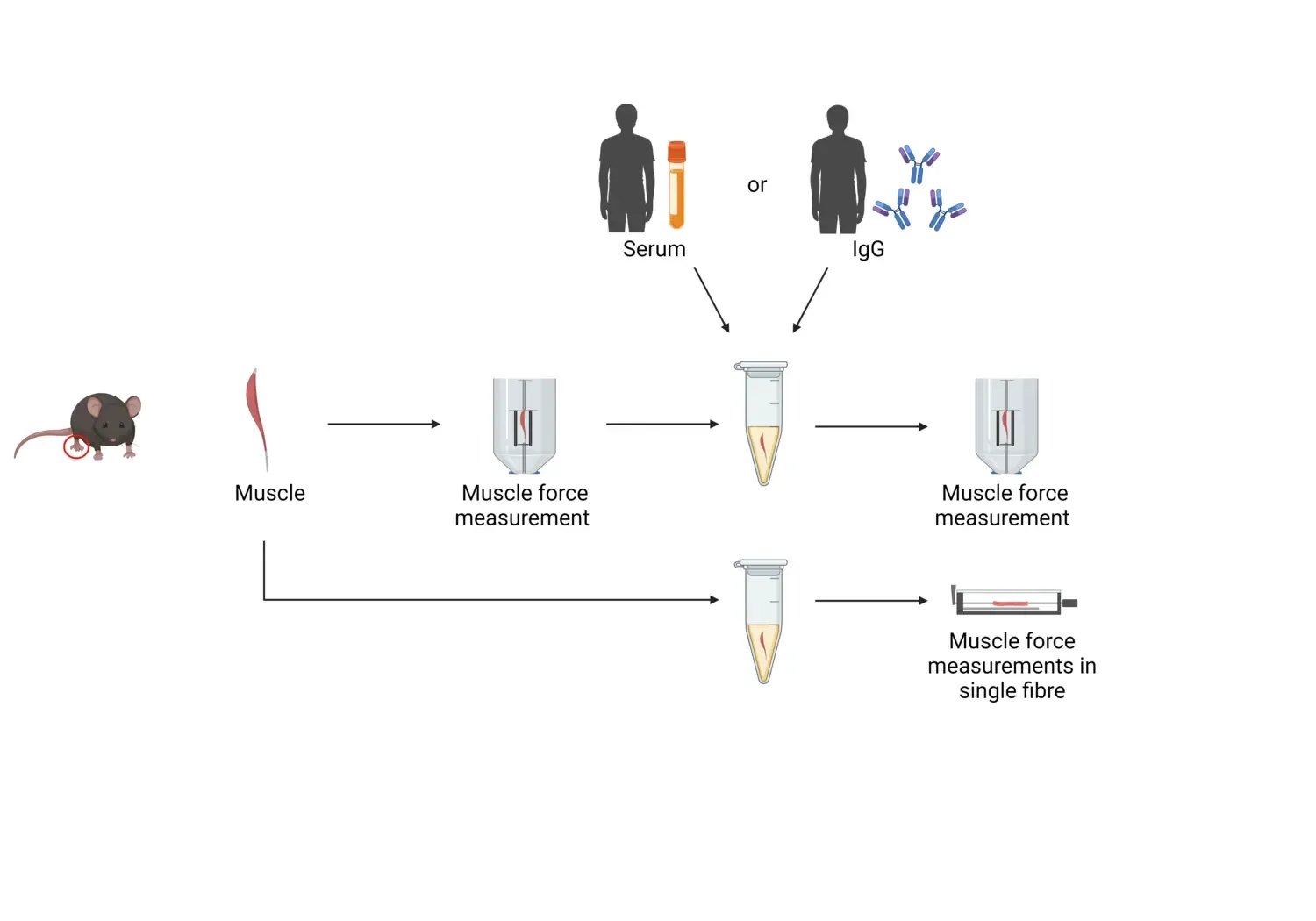New Study Uncovers Key Factors in Myositis-Induced Muscle Weakness

A groundbreaking study has shed new light on the mechanisms behind idiopathic inflammatory myopathies (myositis), a group of systemic autoimmune disorders known for causing severe muscle weakness, fatigue, and increased mortality.

Researchers have discovered that serum from myositis patients directly affects skeletal muscle, leading to weakness, independent of immune cell infiltration or involvement of the nervous and vascular systems.
This study, for the first time, demonstrates that non-cellular factors in the blood of myositis patients impair muscle function. Using a unique humanized test platform that measure contractile force in isolated murine muscles under exposure to human serum, researchers found that the muscle weakness can be caused by myositis serum, but not by autoantibodies, challenging previous hypotheses in the field.

The findings highlight the need to identify the specific factors in the serum responsible for muscle dysfunction, and what factors within the muscle that leads to the myositis weakness. The research team is now focused on investigating potential serological factors and developing pharmacological strategies to prevent serum-induced muscle weakness by enhancing muscle stress resistance.
This discovery marks a significant step forward in understanding myositis and opens new avenues for treatment and management of this deadly and debilitating condition.
